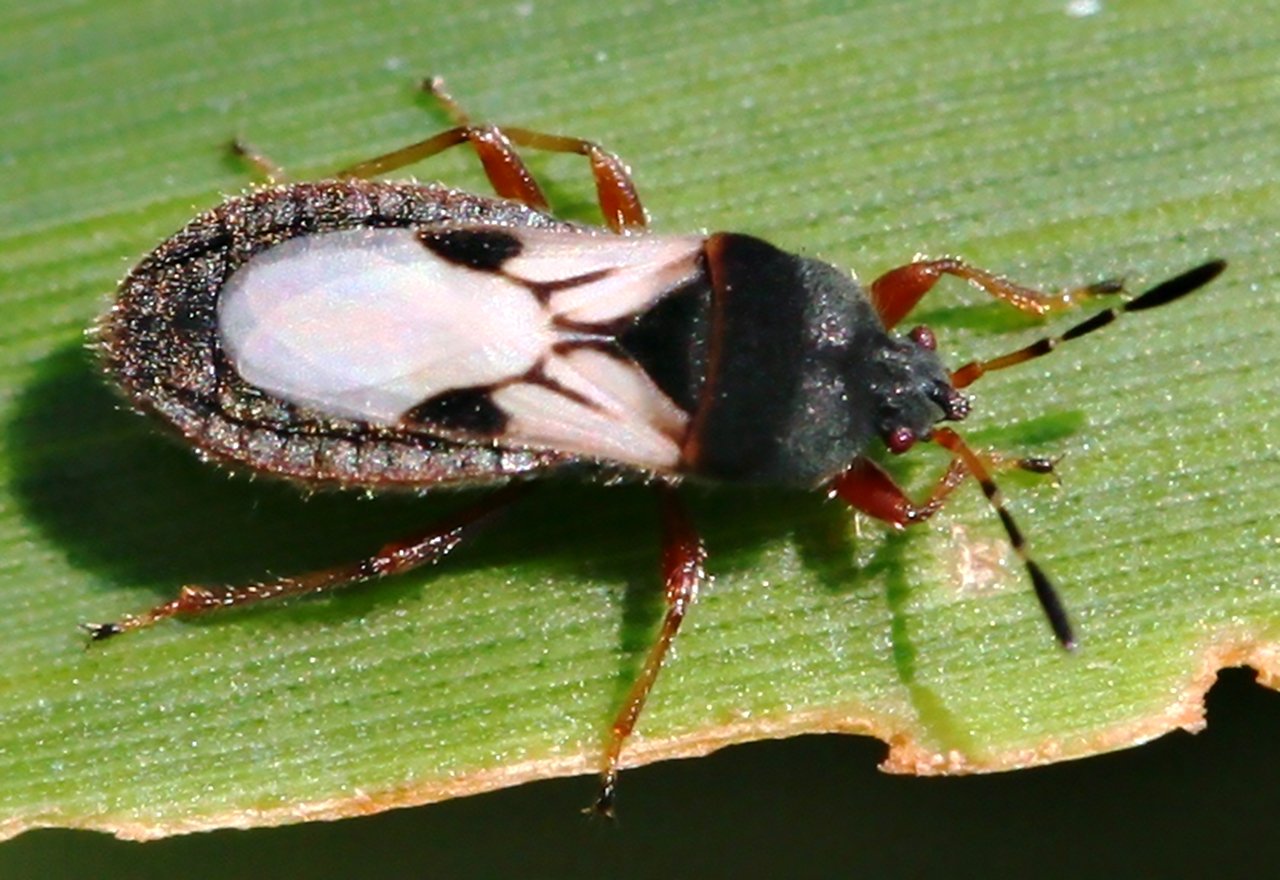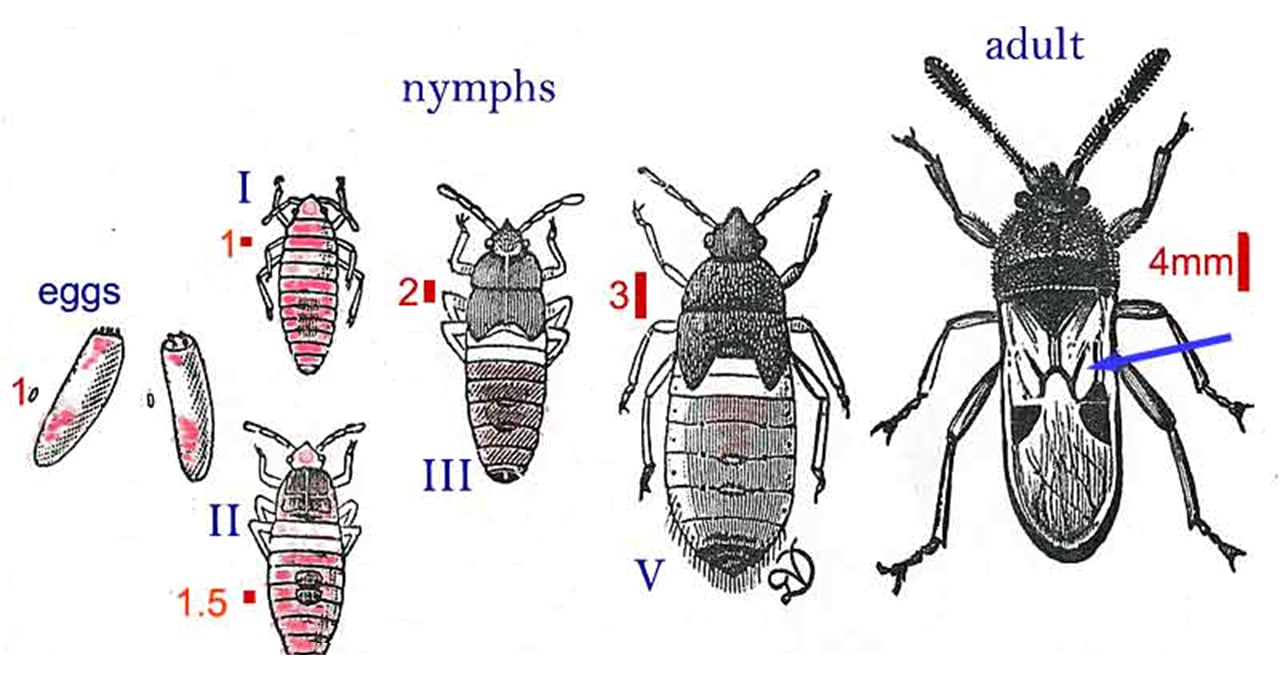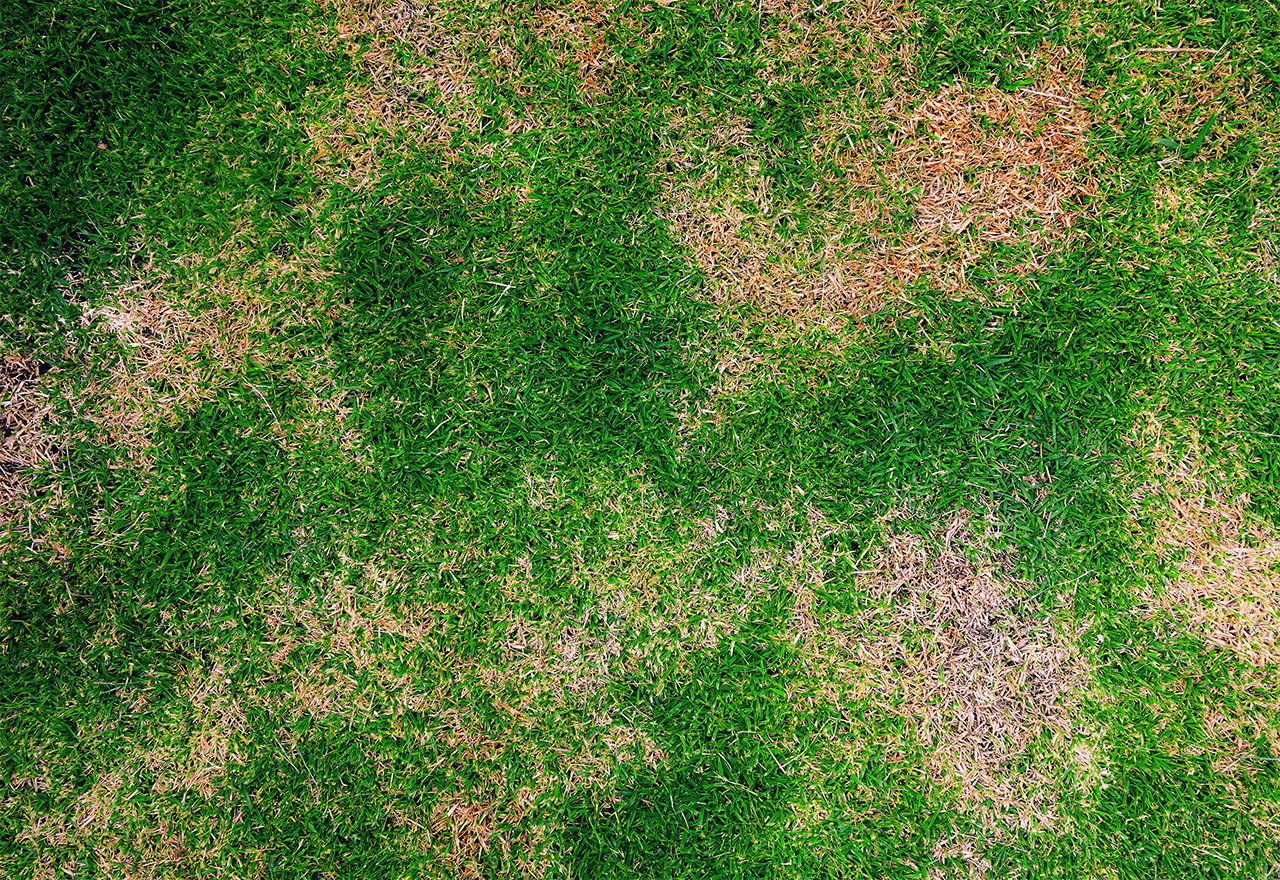Chinch Bugs Inject their Saliva into Grass in the Hot Sun, Turning it Brown

Chinch bugs are tiny bugs that can cause major damage to your lawn. They suck grass blades dry and inject their saliva into it, which is poisonous and turns the grass brown. They are difficult to recognize in the grass because they change their appearance so often. The adult bodies of Chinch Bugs vary in color from dark red to brown with white wings and red legs. Young nymphs are usually bright red and half the size of adults, with a distinguishable white band on their abdomen. To complicate matters, these small lawn pests have predators that control their populations naturally, however, they look almost identical to Chinch Bugs! Many times people will see a bug that looks like a Chinch Bug and apply a chemical to kill them, not realizing that they are actually killing the beneficial predator and ultimately making the problem worse!
If you have Chinch Bug Damage, it probably means that you have grasses that are weak and more susceptible to stress. With the hot Summer weather, this is not uncommon. Chinch Bugs tend to gather in open areas of stressed turf, growing in the sun. Due to the fact that these critters are so small, they often go unnoticed before becoming problematic to the health of your lawn. Most of the time, your grass will recover on its own with some extra watering.
Given that Chinch Bugs feed on and kill grass, the first sign of their infestation will likely be round, yellow or dying patches of grass in the lawn or near walkways. As their host plant dies, Chinch Bugs migrate to surrounding grass plants to continue feeding, which creates dead patches that get larger over time. The rate at which these dead patches grow is dependent upon how large the Chinch Bug population is and the overall health of your lawn. Chinch Bug Damage may be confused for drought stress, disease, nutritional imbalances or grub damage, all of which manifest as dry, discolored areas in lawns. Therefore, it is recommended that grass be carefully examined to determine which corrective measures may be needed.
You can fix just about any problem with seed, and if you use the right Chinch Bug-resistant grass seed that contains endophytes, such as Good Nature Tuff Turf, you shouldn’t have too many problems down the road. If you see Chinch Bugs, you can spread Insect Dust, also called Diatomaceous Earth, in the affected areas, which should slow them down.

